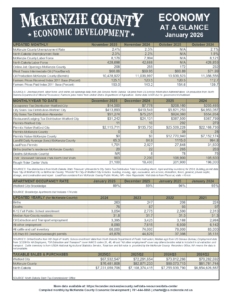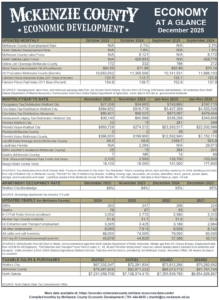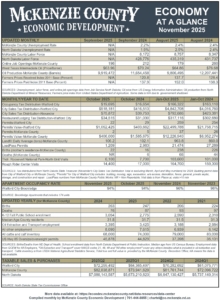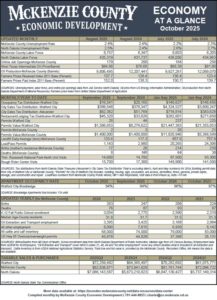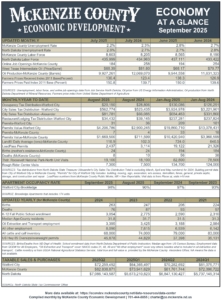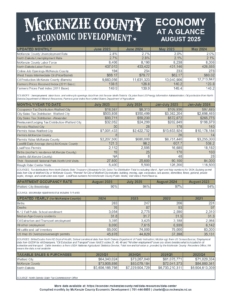In January, McKenzie County Economic Development welcomed Meghan Taunton into her new position as director. Taunton grew up in California and moved to Williston in 2012 during the height of the oil boom. She spent time working in the oil industry before attending Williston State College and the University of North Dakota to obtain a Bachelor’s degree in Geological Engineering and Economics, adding to her degrees in Mass Communications and Public Relations.
Taunton, who most recently worked as a Communications and Grant Coordinator with Tri-County Regional Development, is excited to participate firsthand in the relationship between industry and economic growth. Taunton says “I understand the need for diversified economic and workforce development, the need for energy independence, and the importance of community and environmental stewardship.” She has experienced the challenges that the region faced with housing and labor shortages from rapid growth, but also was able to experience the overwhelming opportunity and sense of community that western North Dakota has to offer.
Meghan can be reached at mtaunton@co.mckenzie.nd.us or by cell at (701) 580-3437.


